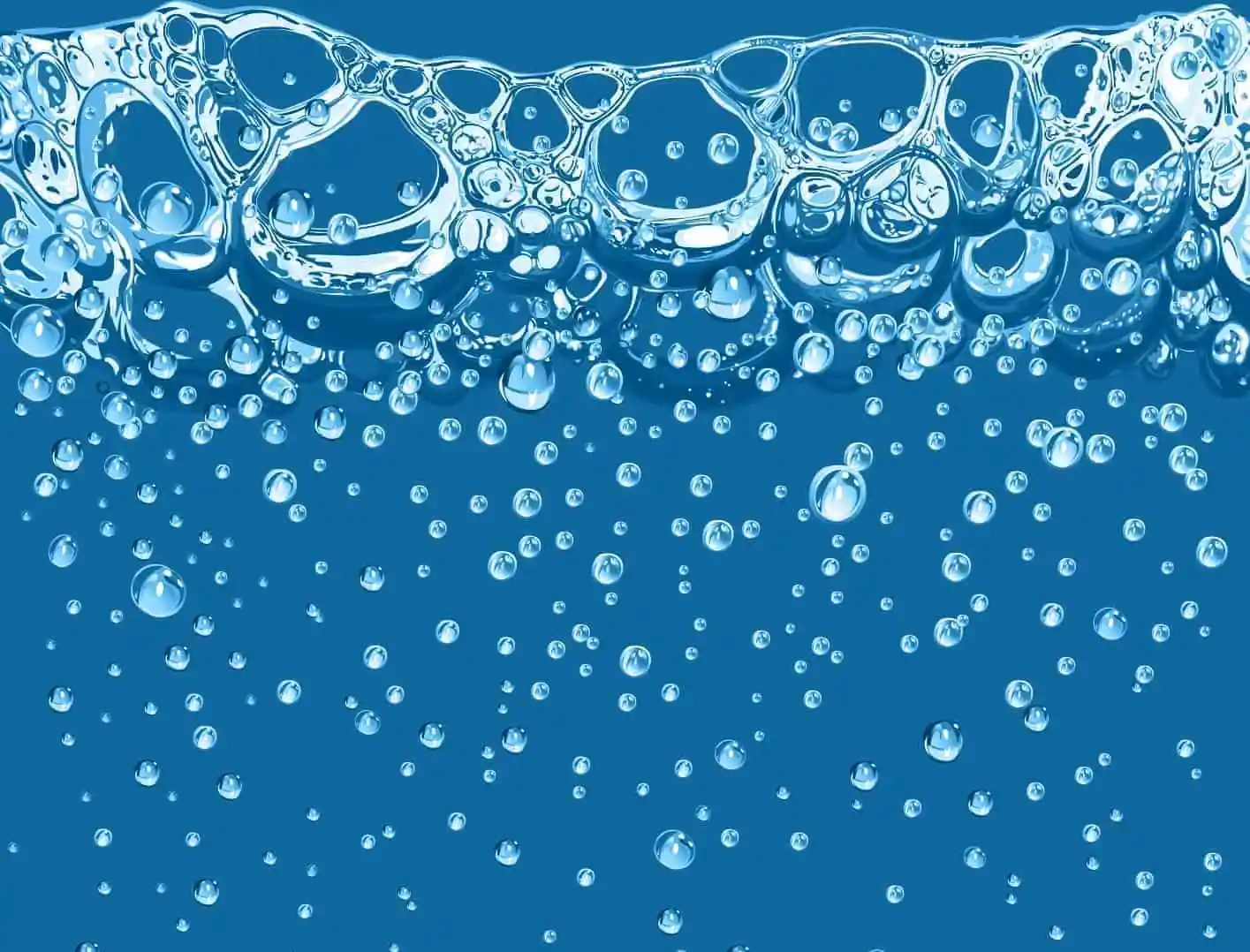While arthritis has no cure, hot tubs can certainly help manage and relieve its symptoms.

Is a Hot Tub Good for Muscle Recovery?
We’re sharing you can use hot tub therapy to deal with muscle soreness.
Incorporating a hot tub into your muscle recovery routine can provide numerous health benefits and help you achieve your fitness goals. This article will discuss the science behind hot tub hydrotherapy, explore various health benefits, and offer tips on how to use a hot tub effectively for muscle recovery.
What is Hot Tub Hydrotherapy?

Hot tub hydrotherapy is the use of warm water immersion combined with massaging jets to promote relaxation, soothe sore muscles, and improve overall well-being. The combination of heat and water pressure stimulates blood circulation, helps to soothe sore muscles, and provides a relaxing environment for the body and mind.
Is a Hot Tub Good For Muscle Recovery?
A recent study looked at how hydrotherapy (using water for healing) helps people recover after doing aerobic exercise like spinning. The researchers found that hydrotherapy was great for improving heart rate, blood pressure, and how tired people felt after the workout. However, it didn’t help with improving strength. Here’s a summary of the main points:
- Hydrotherapy helped people feel less tired and recover their heart rate and blood pressure after a spinning session.
- It didn’t help with improving strength after exercising.
- Overall, hydrotherapy seems like a useful way to recover after exercise, especially for improving heart health and reducing fatigue.
So, if you’re feeling worn out after a workout, taking a dip in a hot tub might help you feel better and recover faster. It won’t do much for your strength, but it can help your heart and make you feel less tired.
9 Health Benefits of Soaking In A Hot Tub

1. Improves Stiffness
Soaking in a hot tub can help alleviate stiffness in your joints and muscles. The warm water and buoyancy work together to reduce pressure on your body, allowing your muscles and joints to relax and release tension.
2. Decreases Muscle Soreness
As mentioned earlier, soaking in a hot tub can help alleviate muscle soreness after a workout by increasing blood flow, which aids in the removal of lactic acid and other metabolic waste products. The massaging jets can also help ease discomfort and reduce inflammation.
3. Reduce injury risk
Using a hot tub before your workout can help loosen up your muscles and increase flexibility. This, in turn, can lower your risk of injury during your workout, especially if you’re engaging in activities that require a significant range of motion.
4. Improves Heat Tolerance
Regular hot tub use can help improve your body’s heat tolerance. This is particularly beneficial for athletes who participate in endurance sports or train in hot environments, as it can help them perform better in such conditions.
5. Better Cardiovascular Health
The warm water in a hot tub can cause your blood vessels to dilate, increasing blood flow and helping to lower blood pressure. This improved circulation can contribute to better cardiovascular health overall.
6. Blocks Pain
The combination of heat, buoyancy, and massaging jets in a hot tub can work together to block pain signals from reaching your brain. This is particularly beneficial for individuals suffering from chronic pain conditions, such as arthritis or fibromyalgia, as it can provide temporary relief and improve overall quality of life.
7. Reduces Stress and Anxiety
Soaking in a hot tub can be a relaxing and soothing experience, helping to reduce stress and anxiety levels. The warm water and massaging jets can help you unwind, while the natural buoyancy can make you feel weightless, promoting a deep sense of relaxation.
8. Promotes Better Sleep
Using a hot tub before bedtime can help improve the quality of your sleep. The warm water helps to relax your muscles and reduce stress, making it easier for you to fall asleep and stay asleep. It’s important, however, to allow your body temperature to return to normal before getting into bed, as this can help promote a more restful sleep.
9. Boosts Immune System
Regular hot tub use can help stimulate the production of white blood cells, which play a critical role in your immune system. By improving your body’s natural defenses, you may be less susceptible to illness and infection.
4 Tips Using Hot Tub After Workout
1. When to Soak After Your Workout
Wait for at least 30 minutes after exercising before soaking in a hot tub. This allows your body temperature and heart rate to return to normal. Soaking too soon after a workout may cause dizziness or lightheadedness.
2. Don’t Skimp On Other Recovery Steps
While hot tubs can be beneficial for post-workout recovery, they should not replace other essential recovery methods such as stretching, foam rolling, and proper nutrition. Combine hot tub soaks with these practices for the best results.
3. Don’t Use A Hot Tub After Injury
If you’ve recently sustained an injury, consult with a healthcare professional before using a hot tub. Soaking in hot water may not be appropriate for all injuries and can sometimes exacerbate the issue.
4. Drink Plenty of Water
Hot tub use can cause dehydration, especially after a workout. Be sure to drink plenty of water before, during, and after your hot tub session to stay properly hydrated.
| Recovery Tip | Why It Matters | How to Implement |
|---|---|---|
| Wait 30 Minutes Post-Workout | Prevents dizziness by allowing heart rate to normalize | Cool down with light stretching before soaking |
| Soak for 15-20 Minutes | Optimizes muscle relaxation and blood flow | Set a timer to avoid over-soaking |
| Hydrate Before and After | Counteracts dehydration from heat | Drink water before entering and keep a bottle nearby |
| Combine with Stretching | Enhances flexibility and recovery | Perform gentle stretches after办法your soak |
Another Advantage: Soak Before Your Workout
Using a hot tub before your workout can help increase blood flow, warm up muscles, and improve flexibility. This can lead to a more efficient and safer workout with a reduced risk of injury.
How Long Should You Soak in a Hot Tub for Muscle Recovery?
One of the most common questions about using a hot tub for recovery is how long you should soak to maximize benefits for muscle soreness and fatigue. For optimal hot tub muscle recovery, aim for a soak of 15 to 20 minutes at a temperature between 100°F and 104°F (38°C to 40°C). This duration allows the warm water and massaging jets to increase blood flow, reduce lactic acid buildup, and ease tension without overheating your body.
Soaking too briefly (less than 10 minutes) may not provide enough time for your muscles to fully relax, while staying in too long (beyond 30 minutes) can lead to dehydration or dizziness, especially after a workout. Listen to your body—if you feel lightheaded or overly warm, exit the hot tub and hydrate. For best results, combine your hot tub recovery session with stretching or light movement to further support muscle repair.
Is a Jacuzzi or Hot Tub Better for Muscle Recovery?
Many people wonder whether a Jacuzzi is better than a standard hot tub for muscle recovery, especially since the terms are often used interchangeably. In reality, a Jacuzzi is a brand of hot tub, and both offer similar benefits for hot tub recovery through hydrotherapy. The warm water, massaging jets, and buoyancy in either a Jacuzzi or a hot tub help soothe sore muscles, improve circulation, and reduce inflammation after workouts.
The key difference lies in features. Jacuzzi models often include advanced jet systems and customizable settings, which may provide a more targeted massage for specific muscle groups. However, any well-maintained hot tub with quality jets can be just as effective for recovery. When choosing between a Jacuzzi or hot tub for muscle recovery, focus on factors like jet placement, water temperature control, and comfort to ensure the best experience for your needs.
Are Hot Tubs Good For You?
Hot tubs can provide numerous health benefits beyond muscle recovery, including stress relief, pain reduction, and improved sleep quality. While there are some precautions to take, such as avoiding hot tub use if you have certain medical conditions or open wounds, the overall benefits far outweigh the risks for most people.
A common benefit is improved sleep. In fact, 33.3% of hot tub owners use their hot tub at night to help with their trouble sleeping. Check out our complete list of hot tub facts to learn even more interesting statistics.
Is a Hot Tub or Sauna More Beneficial for Easing Sore Muscles?
Both hot tubs and saunas offer unique benefits for easing sore muscles. Hot tubs provide hydrotherapy, utilizing the combination of warm water and buoyancy to relax muscles and alleviate tension. Saunas, on the other hand, use dry heat to promote blood flow and help soothe muscle soreness.
Ultimately, the choice between a hot tub and a sauna comes down to personal preference. Some individuals may prefer the immersive experience of a hot tub, while others may find the dry heat of a sauna more relaxing. It’s important to listen to your body and consider your specific needs when choosing between the two.
Cold Plunges: An Alternative Water Recovery Method To Test
Cold plunge therapy, also known as cold water immersion, is another popular water-based recovery method that has gained attention in recent years. Athletes and fitness enthusiasts often use cold plunges as an alternative or complementary therapy to hot tub recovery sessions. When used in conjunction with hot tub soaks, alternating between hot and cold water treatments can be particularly effective for promoting muscle recovery and reducing soreness.
Cold plunges involve submerging your body in cold water, typically with temperatures ranging between 50°F to 59°F (10°C to 15°C), for a short period, usually around 10 to 15 minutes. This sudden exposure to cold temperatures has several benefits, including reduced inflammation, improved circulation, and decreased muscle soreness. The cold water causes blood vessels to constrict, flushing out metabolic waste and reducing swelling. As your body warms up after the cold plunge, blood vessels dilate, promoting increased blood flow and delivering oxygen and nutrients to the muscles.
One popular method that incorporates both hot and cold treatments is contrast water therapy (CWT). CWT involves alternating between hot and cold water immersions, typically starting with a hot soak and finishing with a cold plunge. This method is believed to enhance recovery by stimulating blood flow, reducing inflammation, and promoting the removal of waste products from the muscles.
Hot Tub Safety Tips
Using a hot tub can provide numerous health benefits, but it’s essential to be aware of the risks and follow safety guidelines to ensure a relaxing and enjoyable experience. By following the HOT steps (Heed, Observe, and Talk) recommended by the US CDC, you can take a proactive approach to protect yourself and your family while using a hot tub.
For homeowners with private hot tubs, it’s crucial to maintain a clean and safe environment. Start by making a splash with some fun and lighthearted house rules for everyone to follow. Remind users to take a soapy shower before hopping in, and keep the little ones under five out of the hot tub. Encourage guests to leave their drinks and snacks poolside to prevent spills and contamination. And, while enjoying a soak is a great way to unwind, it’s best to avoid alcohol before and during hot tub use.
Consistent maintenance is key to keeping your hot tub in tip-top shape. Be the hot tub hero by regularly checking the water for adequate chlorine or bromine levels and ensuring the pH stays balanced. Don’t forget to listen to your hot tub’s equipment, like pumps and filtration systems, making sure they’re running smoothly. By staying vigilant with your hot tub care and fostering a fun, safety-conscious atmosphere, you’ll create an inviting oasis for friends and family to enjoy.
Wrap Up
Hot tubs can offer numerous health benefits, including improved muscle recovery, reduced soreness, and enhanced relaxation. It’s important to follow safety guidelines and consult with a healthcare professional before using a hot tub for recovery purposes, particularly if you have any pre-existing medical conditions or concerns. By incorporating hot tub soaks into your post-workout routine, you can support muscle recovery, improve sleep, and promote overall well-being.
Here are two resources to help you make a choice:
- Read our guide to the best hot tub brands to help decide on the ideal hot tub for you and your family.
- We also wrote a helpful article about how to choose a hot tub. Learn more about what to evaluate when you are thinking of making a purchase.
Of course, you could just contact us when you’re ready. Our team at Epic Hot Tubs is ready to help you pick out the most ideal hot tub for your home.
Richard Horvath
Richard has been in the hot tub & spa industry for years. As a long hot tub & swim spa owner himself, Richard has a passion for helping homeowners create their dream backyard.



